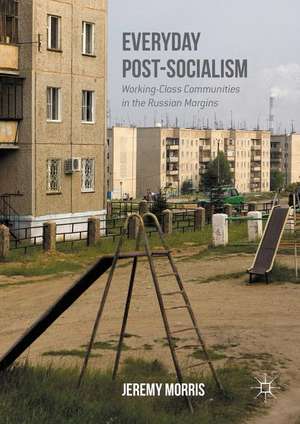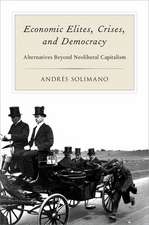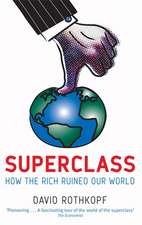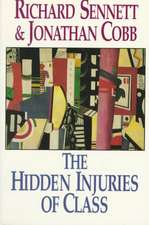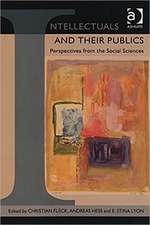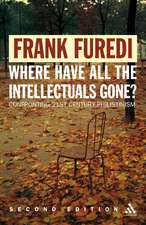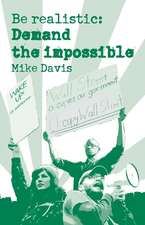Everyday Post-Socialism: Working-Class Communities in the Russian Margins
Autor Jeremy Morrisen Limba Engleză Hardback – 14 sep 2016
| Toate formatele și edițiile | Preț | Express |
|---|---|---|
| Paperback (1) | 778.76 lei 43-57 zile | |
| Palgrave Macmillan UK – 8 iun 2018 | 778.76 lei 43-57 zile | |
| Hardback (1) | 783.35 lei 43-57 zile | |
| Palgrave Macmillan UK – 14 sep 2016 | 783.35 lei 43-57 zile |
Preț: 783.35 lei
Preț vechi: 955.31 lei
-18% Nou
Puncte Express: 1175
Preț estimativ în valută:
149.89€ • 156.92$ • 124.03£
149.89€ • 156.92$ • 124.03£
Carte tipărită la comandă
Livrare economică 07-21 aprilie
Preluare comenzi: 021 569.72.76
Specificații
ISBN-13: 9781349950881
ISBN-10: 1349950882
Pagini: 280
Ilustrații: XXVII, 261 p. 7 illus., 6 illus. in color.
Dimensiuni: 148 x 210 x 21 mm
Greutate: 0.48 kg
Ediția:1st ed. 2016
Editura: Palgrave Macmillan UK
Colecția Palgrave Macmillan
Locul publicării:London, United Kingdom
ISBN-10: 1349950882
Pagini: 280
Ilustrații: XXVII, 261 p. 7 illus., 6 illus. in color.
Dimensiuni: 148 x 210 x 21 mm
Greutate: 0.48 kg
Ediția:1st ed. 2016
Editura: Palgrave Macmillan UK
Colecția Palgrave Macmillan
Locul publicării:London, United Kingdom
Cuprins
Part I. Spaces and Places.- Introduction: The ‘Worthless’ Dowry of Soviet Industrial Modernity.- 1. Blue-collar Personhood after the Factory.- 2. Informal Economy: going underground but coming out of the shadows.- 3. A Woman’s Kingdom? Affect, care and regendering labour.- Part II: Unhomely Presents – Uncertain Futures.- 4. Unhomely Presents: Trauma and values of endurance among older people.- 5. No Country for Young Men: encountering neoliberalism in transnational corporations.- Part III: On Personhoods in Place.- 6. Intimate Ethnography and Cross-cultural Research.- Conclusions. Making Habitable Lives in Small-town Russia.
Recenzii
“Morris’s ethnographic approach is an immersive one. … this book can confidently be placed on undergraduate and graduate reading lists for courses that relate to contemporary Russia and its recent past across many different disciplines, as well as general courses on comparative post-socialism or informal practices.” (Mark B. Smith, Slavonic and East European Review SEER, Vol. 97 (2), April, 2019)
Notă biografică
Jeremy Morris is Co-director of the Centre for Russian, European and Eurasian Studies (CREES) at the University of Birmingham, UK. A disciplinary pluralist, his research aims to capture the actually lived experience of neoliberal and post-socialist transformation in Russia. He is co-editor of The Informal Post-Socialist Economy (2014) and Informal Economies in Post-Socialist Spaces(Palgrave, 2015).
Textul de pe ultima copertă
This book offers a rich ethnographic account of blue-collar workers’ everyday life in a central Russian industrial town coping with simultaneous decline and the arrival of transnational corporations. Everyday Post-Socialism demonstrates how people manage to remain satisfied, despite the crisis and relative poverty they faced after the fall of socialist projects and the social trends associated with neoliberal transformation. Morris shows the ‘other life’ in today’s Russia which is not present in mainstream academic discourse or even in the media in Russia itself. This book offers co-presence and a direct understanding of how the local community lives a life which is not only bearable, but also preferable and attractive when framed in the categories of ‘habitability’, commitment and engagement, and seen in the light of alternative ideas of worth and specific values. Topics covered include working-class identity, informal economy, gender relations and transnational corporations.
Caracteristici
Includes rich ethnographic data
Makes a significant contribution to the emerging second generation of literature on postsocialism in sociology, anthropology and area studies that emphasises that there is life beyond crisis
Focuses on a much underexplored region, 25 years after the Soviet crisis
Makes a significant contribution to the emerging second generation of literature on postsocialism in sociology, anthropology and area studies that emphasises that there is life beyond crisis
Focuses on a much underexplored region, 25 years after the Soviet crisis
